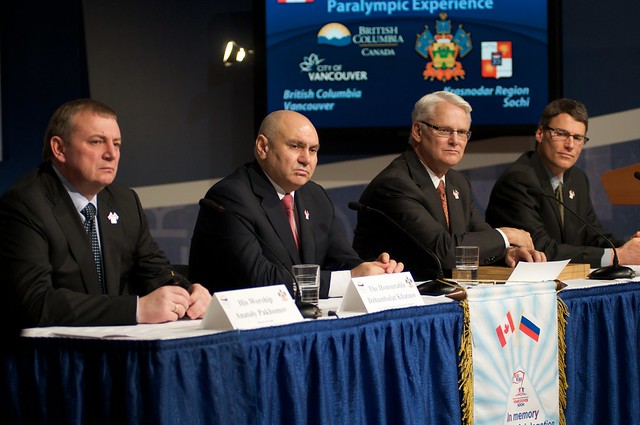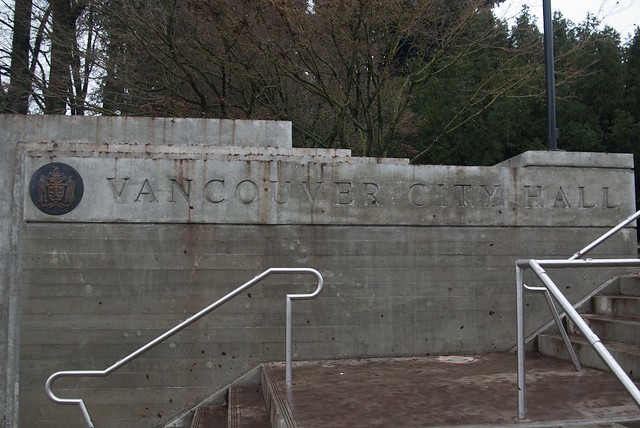Vision Vancouver-dominated city council voted yesterday, Tues Dec 13, to approve the terms of reference for a so-called “affordability task force.” The task force will consult developers, financiers, architects, and other members of Vancouver’s real estate oligopoly — the very interests responsible for the city’s permanent housing bubble and for the city’s culture of rent gouging — in order to produce policy recommendations by March 2012.
Earlier this week, before the terms of reference were even approved by council, Mayor Robertson announced that the task force would be co-chaired by himself and ‘multimillionaire’ developer Olga Ilich.
Olga Ilich is a firmly entrenched member of the lower-mainland’s real estate oligopoly. Ilich is founder and president of Suncor Development Corporation. Most inappropriately, she was president of the Urban Development Institute (UDI), which is the development industry’s primary lobby organization. The UDI lobbies City Hall regularly to destroy and gentrify low-income neighborhoods, to over-ride local community planning processes, and to undermine renters rights.
Ilich is also a BC Liberal. She was a cabinet minister under Gordon Campbell from 2006-2009. News articles about Ilich’s appointment in other publications (The Sun, 24hours, The Straight, Observer, etc) refrain from mentioning the words “BC Liberal” and “Gordon Campbell,” downplaying these connections in order to protect Gregor Robertson from criticism from the left. When the NPA appointed BC Liberal insider, and Gordon Campbell confidante, Geoff Plant to run project civil city, progressives in Vancouver denounced the decision in the strongest terms. But now that Robertson has made an equivalent appointment, progressives seem committed to self-censorship, amnesia, and capitulation.
Certainly the appointment of Ilich sends a strong message to the city’s elite, and especially to the development industry. The message? “Don’t worry, we have put a BC Liberal, multimillionaire developer, UDI president in charge. Nothing will happen that creates true affordability. Prices will not go down. Profits will not go down. Corporate taxes will not go up. All solutions will be private solutions. The real estate industry will remain in the driver’s seat. There will be no new public housing. Don’t worry, dear developers who donated over a million dollars to Vision’s election campaign. Thank you, developers — this is our repayment to you!”



